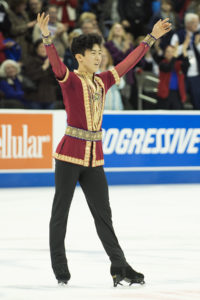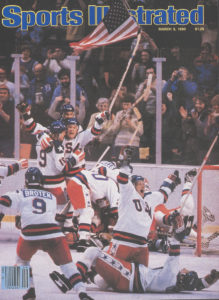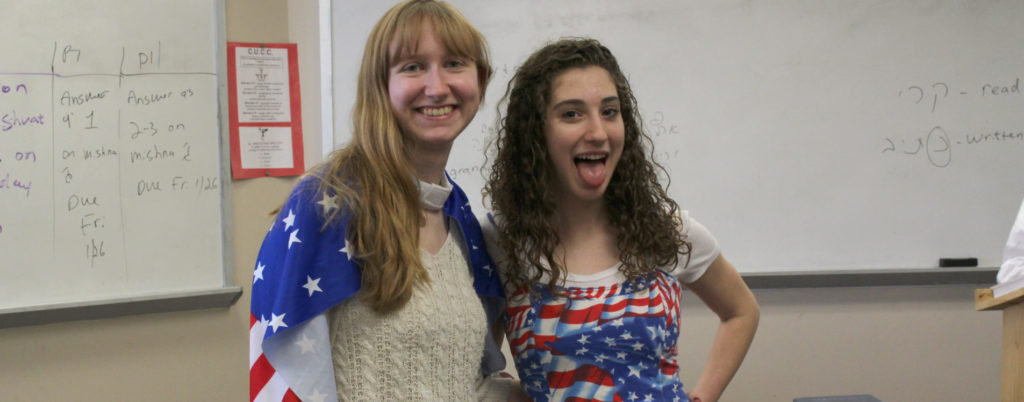The Winter Olympics – a quadrennial event encompassing years of training from thousands of athletes across the globe, each vying to reign victorious – as the best in the world and proudly represent their home country. For many American olympians and spectators, hearing the “Star Spangled Banner” and seeing Old Glory hanging from the rafters is an emotional moment tied to their deep rooted sense of patriotism.
The Winter Olympics in previous years have provided that much needed boost in morale and patriotism amidst our country’s darkest hours. The 2018 Olympics in Pyeongchang, South Korea beginning Feb. 7 have the possibility to provide this same sense of pride to citizens still distraught over a troubling 2017 year.
Nancy Franks, an avid sports fan and Hyman Brand Hebrew Academy (HBHA) fifth grade teacher, sees the Games as revitalizing her sense of patriotism whenever she “hears the anthem played or sees the players stand on the podium.” They also cause her to “respect and admire so much of what the athletes have gone through.”

Lisa Diven is the Director of Kansas City Women’s Intersport Network (WIN), an organization that promotes the values of sports to young girls and women. She sees the Olympics as having the “unique opportunity to highlight all sports, a diverse group of athletes, and both genders.” She especially sees the importance of the 2018 Olympics, which emerge during a time when “our country is so deeply divided on so many issues” as a time to “all chant U-S-A together regardless of which side of politics we stand.”
One of the most memorable instances of rejuvenating American spirit through sports was the 1980 US mens’ ice hockey victory over the defending gold medalist Soviet Union. The game, now affectionately referred to as “Miracle on Ice”, was played on the US team’s home turf in Lake Placid, NY. They won 4-3 against their Cold War rival.

Franks remembers growing up in the ‘60s and ‘70s, a time when “Russia was not well thought of,” and the game being “all anyone talked about.” This victory was able to shift negative energy away from the stresses of the Cold War and toward the positivity surrounding this triumph.
Other significant moments in Olympic history include 1976 figure skating gold medalist Dorothy Hamill. Her victory combined the grace and athleticism that women’s athletes possess. Franks remembers “everyone cutting their hair into the Dorothy-do”, her iconic bobbed hairstyle.
It was unprecedented for a female athlete to be celebrated at the same caliber as male athletes were praised. Diven sees this as an important step toward gender equality in sports saying, “we are still waiting for female athletes to get the attention that male athletes do. But once every four years, that feeling comes back, fueling my work for equality in sport.”
Hamill is in the company of boundary-shattering women like fencer Ibtihaj Muhammad. Muhammad represented the United States in the 2016 Summer Olympics, securing a bronze level finish, all the while being the first Muslim American woman to wear a hijab while competing for the US in the Olympics. This momentous feat is recognized by Diven as, “the perfect reminder that we are all Americans, regardless of race, religion, or politics.” This reminder is especially important in 2018, a time when anti-immigrant sentiment is on the rise.
In these most recent 2018 Olympic games, standout athletes included figure skater Nathan Chen who helped the US secure bronze in the mixed team competition, skier Mikaela Shiffrin who won gold in the giant slalom, and downhill skier Lindsey Vonn who has recovered from injury to compete in the Pyeongchang Games. Veteran snowboarder, Shaun White, claimed gold in the halfpipe competition in his fourth Olympics, alongside Korean-American 17-year-old snowboarder Chloe Kim who claimed gold in the same event.















































































